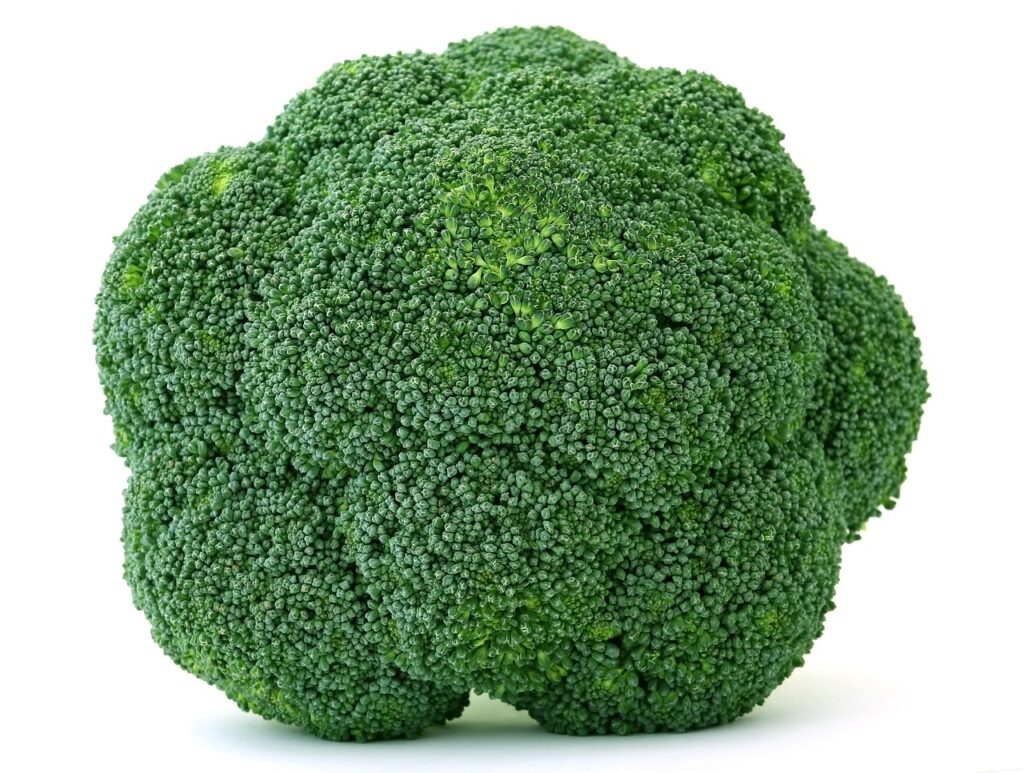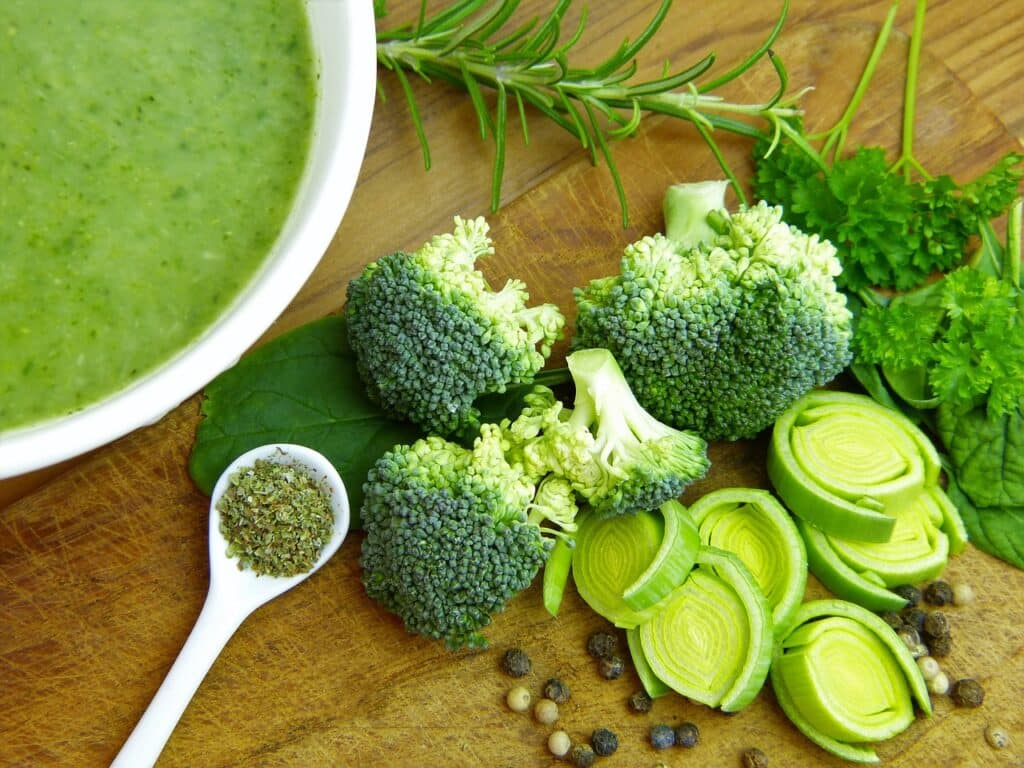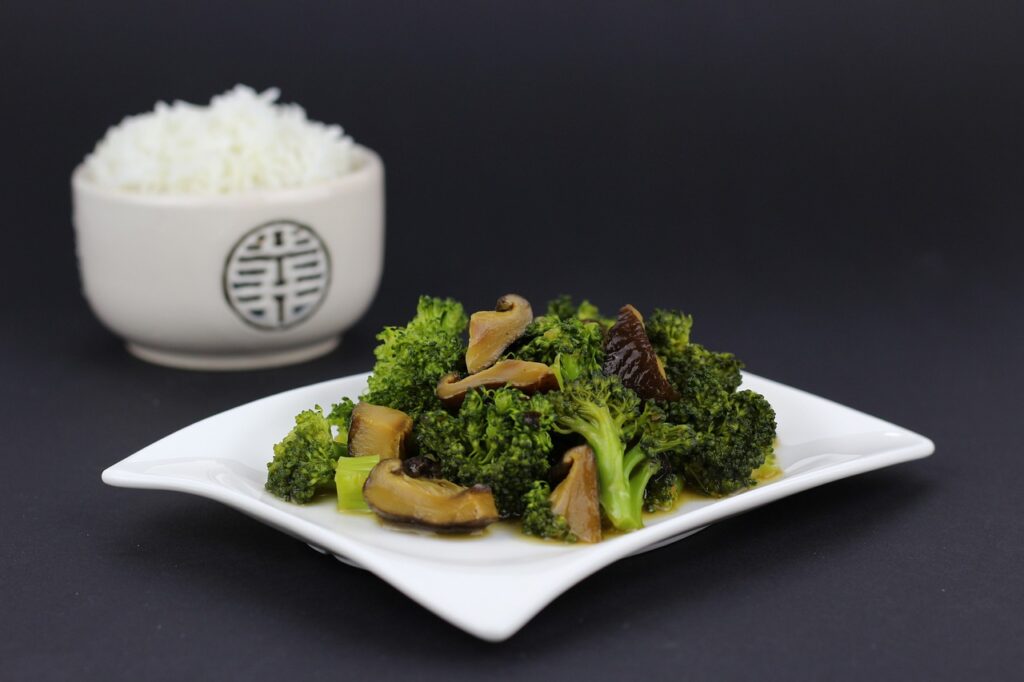Consuming broccoli has gained a lot of popularity among humans in recent years. It can be found in most tasty dishes, both local and foreign, providing a sweet and fulfilling taste and feel to its consumers. Is broccoli man-made or a natural vegetable? This question has raised concerns for individuals who want to be sure whether to consume this very special and different vegetable.

Introduction
Broccoli, a cruciferous vegetable, is a tasty addition to your plate and a powerhouse of health benefits. It hails from the Eastern Mediterranean region, particularly Italy, and is a proud member of the Brassicaceae family, just like cabbage, cauliflower, and kale (Is Kale a Seaweed?- Bravuralope.com). Broccoli, scientifically called Brassica oleracea, originated from the wild cabbage plant, with its name generated from an Italian word called Broccolo, meaning cabbage sprout or out of cabbage.
Table of Contents
Are Broccolis Man-made or Natural vegetables?
Various schools of thought have suggested that the simple answer to this question is “Yes,” given their reasons. This article explains why this could be a yes or no answer.
Broccoli is not genetically engineered or created. Instead, it is genetically modified through a process known as selective breeding. This process involves modifying an existing cruciferous vegetable to enhance its feel, look, texture, and sometimes even taste. It’s important to note that this modification is not done by man using chemicals or a mixture of other substances but rather by nature itself.
The answer to the question of whether this vegetable is man-made or natural is a nuanced one. Yes, man was involved in refining and manipulating certain species of vegetables through selective breeding. However, broccoli is also a cultivated vegetable, planted and nurtured like every other natural vegetable. It is not produced or manufactured with the use of any chemical substances or laboratory experiments, reaffirming its natural origins.
Although this wild cabbage plant could pass as man-adjusted or a genetic modification by man, it is not wholly an artificial creation but rather an improvement on nature through selective breeding by old-time Italian farmers. They did this by selecting specific bud sizes, colors, flavors, and structures, giving rise to broccoli’s various variants and looks.

What Broccoli Vegetables Provide in Terms of Nutrition
Whether frozen packed or bought fresh at the grocery store, this vegetable is power-packed with various nutrients and health values. These include:
Fibre:
Broccoli is a rich source of fibre, with a cup of cooked broccoli containing about 5 grams of fibre. This fibre intake aids in the proper digestion of food, improvement of gut health, and regular bowel movement in individuals. With broccoli, individuals can maintain a proper or healthier weight.
Protein:
While this vegetable may contain less protein than other protein sources, its moderate content can still provide the protein needed for the body to function. Their versatility allows for inclusion in various meals, adding enormous health value to the body and empowering you in your food choices.
Antioxidants:
Broccoli’s antioxidants protect cells from damage caused by radicals, reducing the risk of chronic heart disease. Various antioxidants, such as sulfur and glucosinolates, which have anti-cancer properties, and Lutein and Beta-carotene, serve as immune boosters and have anti-inflammatory properties, providing a reassuring shield for your health.
Potassium:
Broccoli contains moderate potassium, which helps control blood pressure, minimize the risk of hypertension and muscle issues, maintain proper fluid balance and improve overall body health.
Vitamins and Phytonutrients:
They are rich in Vitamins C, K, A, and B, which help in wound healing, immune boosting, health vision, and overall well-being.

Health benefits of Broccoli
- Healthy Brain: This vegetable’s nutrients are known to support brain health, they enable memory retention, cognitive reasoning, and concentration, which could generally improve the brain’s performance and activeness. Sulforaphane, a powerful compound in this vegetable, protects brain cells from damage, reduces inflammation, and improves overall brain health.
- Weight Maintenance: With low-calorie and high-fiber content, broccoli is an excellent addition to weight management. Adding bulk to your meals and making you feel full and satisfied. It also helps you consume fewer calories, aiding weight maintenance.
- Digestive health: Its high dietary fiber content, both soluble and Insoluble, plays a significant role in supporting digestive health. This fiber aids regular bowel movements, prevents constipation, reduces digestive disorders, and maintains a healthy digestive system, keeping you informed and aware of this aspect of your health.
- Immune Booster: This vegetable’s Vitamin C and sulfur-containing chemicals are essential for supporting the immune systems of both children and adults. Especially in colder months, vitamin C protects cells from damaging free radicals that can cause illness and helps shield the body from infections.
- Cancer prevention: Sulforaphane and indole-3-carbinol, two substances with solid anti-cancer effects, are among the many chemicals found in broccoli. These substances are essential in decreasing the chance of developing some cancers, such as colon and breast cancer.
- Bone health: This vegetable is also a rich source of vitamin K and calcium, crucial for maintaining strong and healthy bones. By including broccoli in your diet, you’re taking a proactive step towards ensuring your bone health.
- Anti-inflammatory properties: The antioxidants and phytonutrients in this vegetable also possess anti-inflammatory properties, which help reduce body inflammation and lower the risk of chronic diseases.
- Eye health: These unique vegetables are rich in antioxidants like lutein and zeaxanthin, which are great additions for maintaining eye health. They reduce the risk of age-related eye deterioration and even cataracts.
- Skin health: Broccoli’s vitamin C helps maintain healthy and youthful skin and appearance. It also protects the skin from UV radiation and environmental pollutants, eliminating sunburn.
- Healthy pregnancy: Broccoli is rich in folate, essential for pregnant women as it helps protect them against neural tube defects in the developing fetus. Its other nutrients also support the mother’s overall health during pregnancy.
- Anti-aging: A unique combination of its antioxidants and phytonutrients provides long-term benefits. This vegetable protects cells from damage caused by free radicals, reducing the pace of aging and the occurrence of other age-related diseases.

Limitations
While Broccoli is of immense value and benefit to the human body, it’s essential to understand that excessive consumption can lead to specific health concerns. These include bloating, swelling, regular blood clots, and other allergies, which you should be aware of to ensure a balanced diet.
They also contain oxalates, compounds that can bind to minerals like calcium and iron, potentially reducing their absorption. This is a significant concern, particularly for individuals with kidney stone issues or potential iron deficiencies, highlighting the need for caution and awareness in their dietary choices.
Conclusion
Broccoli is not a vegetable obtained from chemical mixtures in the laboratory but rather a product of natural selection and human cultivation that emerges to be of profound health value to the body. This cultivated vegetable is naturally equipped with numerous nutrients, from vitamins to protein and fibre, necessary for individuals’ overall health and well-being.
Originating from wild cabbage plants like kale, these vegetables offer various vitamins, minerals, and antioxidants essential for optimal health. They support the immune system and promote heart health, fostering digestion and reducing the risk of cancer. Their versatility and nutrient density make them an essential component of any healthy diet. Whether steamed, roasted, eaten as is, or added to various dishes, their benefits are easily incorporated into daily meals, ensuring a flavorful and nourishing eating experience.
Related Articles
Broccoli Man Made: Uncovering the Delicious Origins | Food Readme
Is Broccoli Man-Made? The Truth About Its Origins – Gardenia OrganicIs Broccoli Man-Made Or Naturally Found? – BackGarden.org